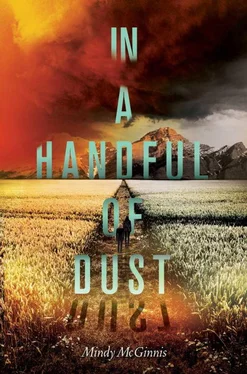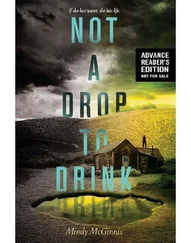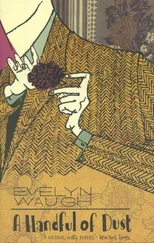“How old do you think he is?”
“Younger than you, by a bit.”
“He acts older.”
“People act lots of ways.”
Ben was back moments later with a pencil, an IV bag, and three hospital gowns. “This’ll have to do.”
“Good enough,” Lucy said, taking the pencil from him. “Now hide that bag under one of the gowns. I won’t look.”
She buried her head under the pillow, taking comfort in the dark and the memory of Stebbs that the game brought rushing back. Long winters had been spent in the basement while he taught her to hone their shared ability to the point that she didn’t even need a switch to point the way. The hum of water called to her fingers, the vibration of life answering in her veins with a voice few could hear.
When she opened her eyes, she saw Lynn had turned her head, unwilling to see her giving away her grace so easily to strangers. Lucy made a show of deliberation even though she felt the pulse the moment her hand passed over the middle pile, strong and sure.
“That one,” she said, and Ben lifted it to prove her correct. Bailey’s white face floated in the door window like a curious moon.
“You really can,” Ben said, his voice breaking on the last word.
“Yes, I really can,” Lucy said, and forced herself to smile at him.
“It’s called failure to thrive ,” Ben said as they walked into the scorching sun. Lucy tried to ignore the feeling that her skin was trying to creep off her bones upon being reintroduced to the heat. Nora had warned her against walking too much on her injured foot, but she wasn’t going to let Ben know how badly it hurt her to keep in stride with him.
“What’s that?”
“That’s what’s wrong with me,” he clarified. “Up here.” He pointed toward the building that was their destination, mercifully near.
“I didn’t realize there was something wrong with you. Physically,” she added.
“Oh, there is. Failure to thrive,” he repeated, as if naming it provided an enemy. “I’m eighteen years old.”
“You’re not,” Lucy contradicted. “You don’t even hit my shoulder.”
Ben shrugged. “That’s why it’s called failure to thrive. We do very well for ourselves here now, but that hasn’t always been the case. When I was little, I didn’t get everything I needed, nutritionally speaking.”
Lucy was about to point out that he was still little when she stopped in her tracks, awed by an eerily familiar sight she couldn’t quite place. “I feel like I’ve seen that before.” She gestured at the building across the street, which rose into a graceful point in the sky.
“Not that, exactly. At least I doubt it,” Ben said. “That’s a replica of the Eiffel Tower. The original is in Paris, France. Do you know where that is?”
“Europe,” she immediately shot back, suddenly grateful to Lynn for forcing an education on her, even if it was only culled from encyclopedias during the long winter months when their hands could be idle.
“You can’t catch my disease.” Ben changed tracks quickly, obviously surprised that she knew the answer.
“I wasn’t going to ask that.”
“Maybe not, but you were wondering.”
They walked on in silence, the towering presence of the empty buildings silencing any retort she might have come up with. Even though her memories of Entargo were limited by time and the fog of childhood, she could recall uniform skyscrapers like rectangular siblings. The buildings here were different, each a vibrant explosion of glass and cement, their colors dulled by time and the joy of life they strived to express stilled by the emptiness of the streets.
Ben veered to the left, steering her by the elbow toward a huge building, bleached bone white by the sun. “Careful,” he said. “The railing is starting to give in a few places. You don’t want to fall in.”
“Fall into what?”
“That used to be a lake,” Ben said, nodding toward what looked like a miniature desert trapped by white barriers. “We can’t keep the sand out of everything, though we try to keep the streets clean. You step out onto it and you’ll sink.”
Lucy looked over the undulating plains of sand, carved by the hot breeze that felt like a blast from a wood fire. “Would it go over my head?”
“No, it’s not that deep, but digging you out would be a job. I’m not strong enough to pull you out, and everyone else is busy enough as it is.”
She didn’t ask who “everyone else” was, as they had passed no one on the streets. The shadow of the building they approached stretched out toward her, and Lucy resisted the urge to run the last few feet into its inky coolness.
“A lake, huh?” She glanced back over her shoulder at the miniature desert. “Where’d all the water go?”
Ben opened a door for her, and she stepped through into the heat of the building, its trapped air stuffy with the exhalations of generations. “It was all taken out and stored by my grandfather a long time ago,” he said, his chest swelling with the importance of his ancestors. “The pools too.”
“What’s a pool?”
“It’s—” Ben stopped and looked at Lucy as condescendingly as possible, since he was a foot shorter than her. “Exactly how country are you?”
“Very,” Lucy said, her voice lost in the faded opulence that surrounded her. The lobby stretched for what seemed like miles, far past the daylight streaming through the sand-grimed windows behind her. The rounded arcs of light cast by the windows were quickly eaten by the depth of a darkness so complete that Lucy could only guess at the height of the ceiling or where the walls ended on the far side. The heat from the outside had tapped the last of her rebuilt strength, and her lungs struggled to pass the weighty, warm air in and out of her body. Her foot throbbed so deeply she could feel a pulse in her knee.
“I need to sit,” she said weakly, seconds before falling to the floor, the impact softened by a rug so deep her fingers sank into the fibers, and she wondered if it would close over her head like the sands outside, and the raging waters of the river.
Ben walked into the shadows and she heard the scraping of furniture, followed shortly by the reemergence of his face, puffy with exertion, as he pushed a padded chair to her. “Have a seat,” he said grandly, then dropped to the floor next to her, falling back onto the carpet and staring into the emptiness of the far-reaching ceiling.
Lucy could almost forgive his attitude when she saw how much it had cost him to bring her the chair. She lifted herself into it, studying his pasty, pale face while he had his eyes closed for a moment. “Thank you for the chair,” she said.
“Dad says I need to make sure I’m polite. He says a boy built like me won’t get a girl who wants protection. So I’ve got to aim for one who wants someone to be nice to her.”
“So you’re nice on purpose, not because you want to be, is what you’re saying?”
“Is ‘nice’ a naturally occurring trait?”
Lucy didn’t answer, since she doubted failure to thrive was a naturally occurring trait either. Ben sat up and pulled himself to his feet using her chair. “C’mon. Dad’s in the gardens. He’ll be wanting to see you.”
She followed him through the cavernous lobby, their footsteps echoing out and above them, bouncing off the unseen walls and ceiling. They emerged from the darkness into a garden so bright Lucy’s eyes ached from the contraction of her pupils. The garden stood in stark contrast to the hollowness of the lobby, every inch covered with light and green growth. Lucy’s words did not echo endlessly there, instead absorbed by the life around her, drinking in her voice instead of throwing it back at her in defiance.
Читать дальше












